Drop six high-school students together into a conference room. Add their math teacher. Stir in a 90-minute session on calculating probability in specific examples of global health risk. At unpredictable intervals, spot-quiz the students on symbolic equations and numbers crunching. Is this a recipe guaranteed to produce adolescents who are excited about math and vibrant for social justice?
Well, yes. Yes, that is, for the six Cambridge School of Weston (CSW) sophomores who attended a workshop at the Global Health Education and Learning Incubator (GHELI) at Harvard University. Their visit was inspired by their algebra teacher, Agnes Voligny. Voligny, who is currently collaborating with the Incubator via a faculty immersion residency, is working with GHELI Director, Dr. Sue J. Goldie, and her staff to develop a year-long curriculum of innovative algebra modules that will draw on GHELI’s global health framework to teach math using a social justice theme. Goldie, a decision scientist and award-winning educator, used the workshop on June 6 to build on ideas (like “conditional probability”) that Voligny and her students had already discussed, to model and encourage “analytical thinking through real-world challenges in public health and global health.” Around the table—cluttered with bright placemats, colored markers, pizza, and lots of drawing paper—students talked easily, discussing health risks such as the Zika virus, and working through probability exercises framed to cross disciplinary boundaries and extend their understanding beyond mathematics and into the realms of public policy, ethics, health, and decision analysis. Throughout the session, Goldie deliberately seized opportunities to encourage teens’ self-confidence. “Good, really, really good,” she said when a student appeared uncertain. “You all could do this right now.”
The students were captivated. Before attending the workshop, reflected Taisuke Sato, “I thought that the probability is the very simple thing that is somewhat connected to a percentage. I did not even expect that probability can tell a lot about our life. But today I learned that probability is deeply connected to every field of science, and it is the essential part of them.” Voligny agreed, emphasizing the relevance of global health topics to teenagers and the promise that health challenges hold in building understanding around algebra topics.
The Incubator’s collaboration with CSW began in 2015, when Goldie developed and taught a month-long course for a dozen CSW teachers. The Incubator then supported the school’s first-ever global health course early this year, helping to provide teaching materials and co-teach select classes. CSW faculty are currently in dialogue with the Incubator about co-developing new cases and lessons, teaching strategies, and delivery models.
